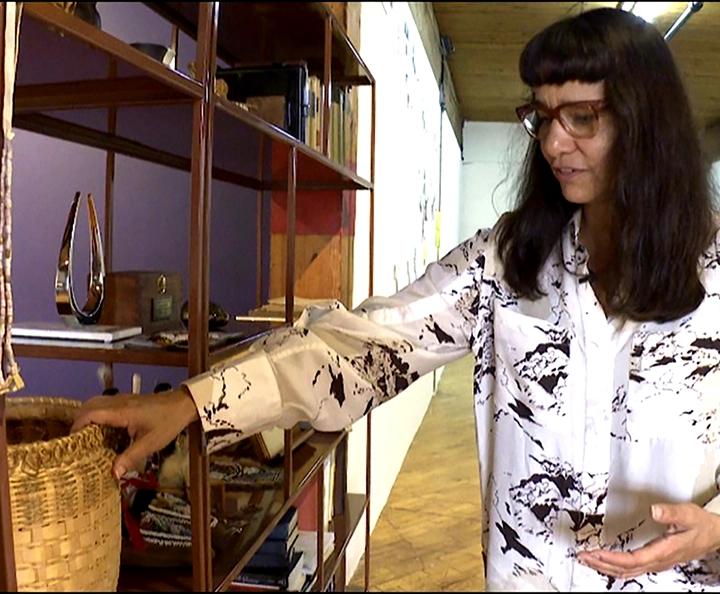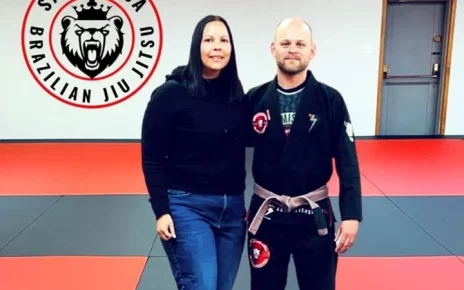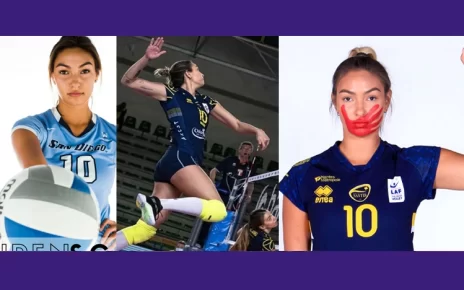May 11, 2023 | kare11.com
MINNEAPOLIS — Rosy Simas is still settling into a new studio in the Northrup King building in Northeast Minneapolis. Her open space shines with natural light, bisected by a display shelf decorated with cultural items filled with personal meaning, as an enrolled member of the Seneca Nation, Heron clan.
Each day, she’s able to spend time around corn husk dolls given to her by her uncle, Haudenosaunee (an alliance among six Native American nations, including Seneca Nation) beadwork pieces that she began collecting in the early 2000s, and baskets woven by Netti Watt, a friend of her grandmother’s in the early 1900s. The walls are just starting to be decorated with colorful papers emblazoned with notes, mapping out her next project.
“This is where I do my research,” she said. “Some of [these materials] are passed down through my family, and some of them are things that I have bought because I think it’s important that when I leave this planet, the things that I have that are Haudenosaunee be at a place where other people who are Haudenosaunee can be in relationship to them.”
It is out of her strong familial connections that Simas’ art is born: contemporary improvisational dance where, through her body movement, she says she actively connects with her family from the present and past. As a transdisciplinary artist, Simas also produces entire presentations, weaving together dance, sculpture, video and sound. And now, among her research materials and in her own space, she has more flexibility to craft her next artistic endeavor, thanks to a large grant she was awarded earlier this year, totaling $550,000.
“This has been a really rough time with the pandemic and inflation, so the award comes at really the best timing it could have been,” Simas said.
Simas is one of six artists nationwide to receive a 2023 Doris Duke Artist Award, an unrestricted grant that the Doris Duke Foundation says is to “propel leading performing artists and to demonstrate the creative possibilities that emerge when artists themselves are able to define—and provide for—what they need to thrive.”
Simas also runs a nonprofit—Rosy Simas Danse—that provides a large studio space in the Northrup King Building equipped with a kitchen and bathroom, for BIPOC artists in residence. It wasn’t until April that she had her own space in the building. She says the award frees her to think out a little more, alleviating some financial stress.
“This allows me to sort through my research and be able to map it out on wall space so I can visually see it, and I have been able to put money into a retirement account, to be able to hire a proper tax accountant, to be able to think about how long I want to be working at this level… what does that look like 10 years from now? 20 years from now?”
Simas’ body of work spans three decades, and in her words, “I don’t see myself as somebody who ever stops working.” Now, she continues to look forward.
“One of the most important things I want people to know is that Native artists are contemporary,” she said. “We are at the forefront of innovation, experimentation… we are really the first American artists.”




